Addressing Food Access
The Arkansas Governor’s Food Desert Working Group was organized in the Spring of 2022 to provide recommendations for actionable steps the State of Arkansas could take to eliminate food deserts. In December 2022, the group released a report detailing ideas and solutions.
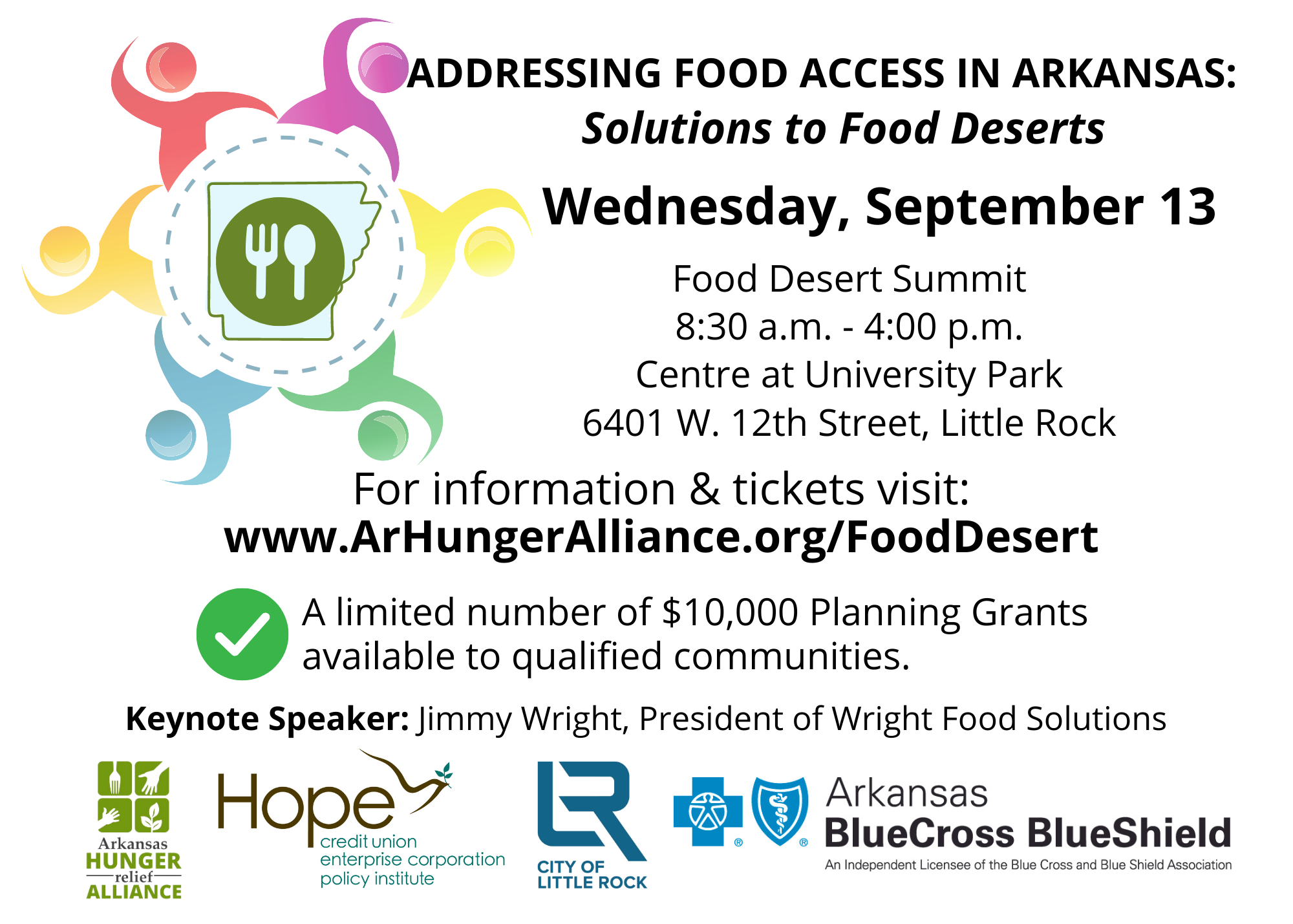
Watch the Food Desert Summit Morning Session
Watch the Food Desert Summit Afternoon Session
Featured Speakers and Panelists
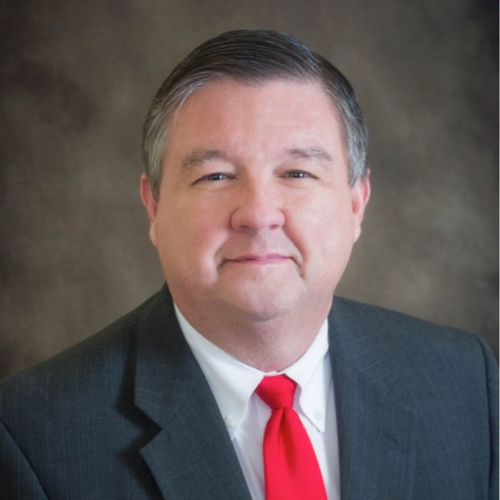
Jimmy Wright
Learn More
Jimmy Wright is president of Wright Solutions of Alabama and owner and operator of Wright’s Market, a traditional neighborhood retail food store in Opelika, Alabama. Wright’s Market was the first Independent Grocery in the United States to offer the ability to use SNAP benefits to shop online. He testified before both the U.S. Senate and House Agriculture committees on the importance of SNAP. In January 2020, he formed Wright Food Solutions to offer consulting services to retailers, wholesalers, non-profits and community development groups in the area’s food access, food security and food affordability, with a focus on urban inner city and rural America.

Roshun Austin
Memphis, TN
Learn More
Roshun Austin is the President/CEO of the Works, Inc, a 30-year-old community development corporation. The Works, Inc. (TWI) is the developer of single-family and multifamily properties in distressed neighborhoods. TWI is a operates a farmers’ market, a greengrocer, a mobile grocery; provides nutrition education; operates a mortgage loan fund; and does work around the comprehensive needs of children and families. The Works, Inc merged with Neighborhood Preservation, Inc in January 2022 expanding its services to include policy advocacy, the Strategic Code Enforcement Management Academy, the Blight Elimination Steering Team, promoting collaborative efforts to develop practical and sustainable resolutions to blighted properties and to the systems that lead to widespread neglect, vacancy and abandonment of real estate.
She earned her M.A. in Urban Anthropology at the University of Memphis and her undergraduate degree at Middlebury College. She’s the mother of one daughter, Lailah who is pursuing a career in the real estate and the arts.
Ms. Austin is the Treasurer of the Memphis Fourth Estate (The Daily Memphian). She is also Treasurer of Urban Renaissance Partners. She will end her tenure as Assistant Secretary for the Methodist Healthcare Foundation and as the Chair of Mission Advancement on the management committee of the Urban Land Institute Memphis Chapter in June 2023. She has long served in advisory capacity to the Memphis Black Arts Alliance. Recently Ms. Austin joined the Board of Directors of the Mid-South Food Bank.
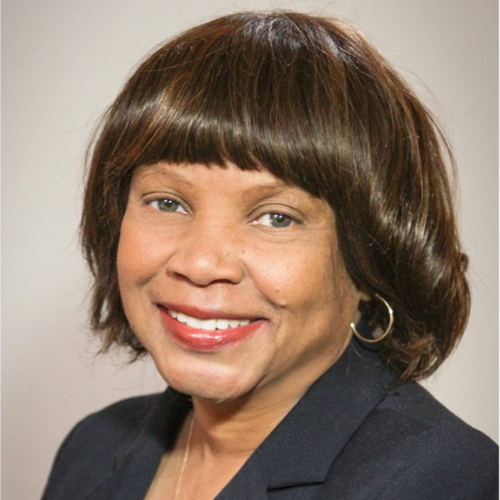
Gloria Dickerson
Learn More
Previously she worked for the W. K. Kellogg Foundation. She was hired as the Controller for the Foundation and was later named the Program Director to coordinate the Mid-South Delta Initiative, an economic and community development initiative. She retired from that position in, August, 2009. Prior to her work at Kellogg, Dickerson was Vice President of Financial Operations for MINACT, INC. in Jackson, Mississippi.
Dickerson opened the Mae Bertha Carter Learning Center in September 2017 where she instructs and directs youth and adult programs including workshops of life skills, healthy living, African American history, financial literacy, healthy relationships, mindfulness, and career readiness. Dickerson was elected to the Sunflower County Board of Supervisors in November 2015, and is unopposed for her third term as Supervisor.
Dickerson received her bachelor’s degree in accounting from the University of Mississippi in Oxford and her MBA from Millsap’s College in Jackson, Mississippi. She is a former Certified Public Accountant. She is an instructor/trainer and is certified in Heal Your Life®, Mindful School®, Infinite Possibilities®, and Primordial Sound Meditation™. Additionally, she is a Life Coach, and an Internal Family Systems Counselor. Dickerson lives in Drew, MS. She is married to Donald Dickerson and has one son, Deidrick.
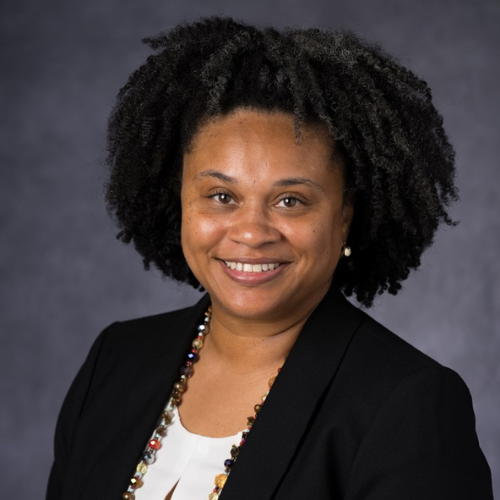
Chiquikta Fountain
Learn More
Ms. Fountain is a two-time graduate of Delta State University, with a Bachelor of Arts degree in Journalism (2010) and a Masters of Business Administration (2012). She serves on the Board of Directors for Friends of the Environment, the Coalition for Citizens with Disabilities and is the Chairperson for the Bolivar County Community Action Network (CAN). She is a native of Drew, MS and currently lives in Cleveland, MS.
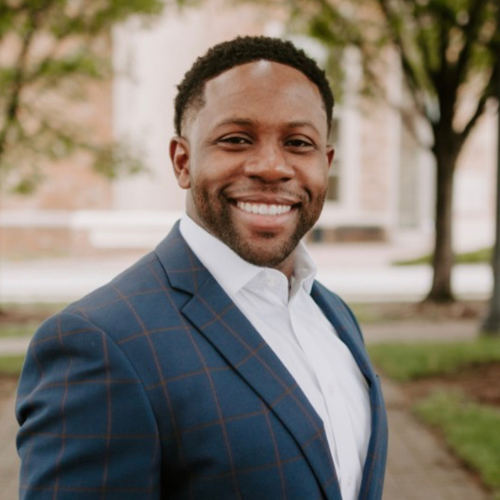
AJ Johnson
Learn More
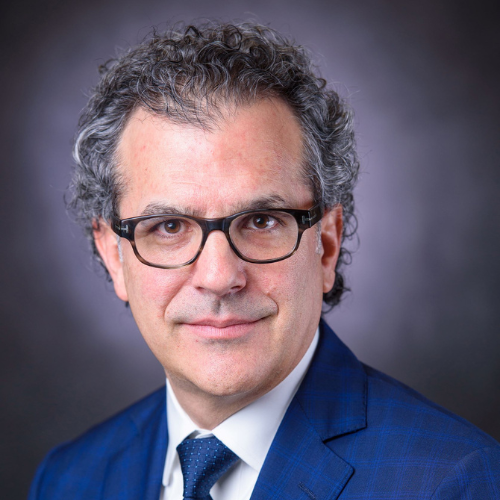
Kevin Coogan
Learn More
bachelor’s degree in business marketing from Loyola University New Orleans and is a graduate of the Executive Program in business administration at the UCLA Anderson School of Management.
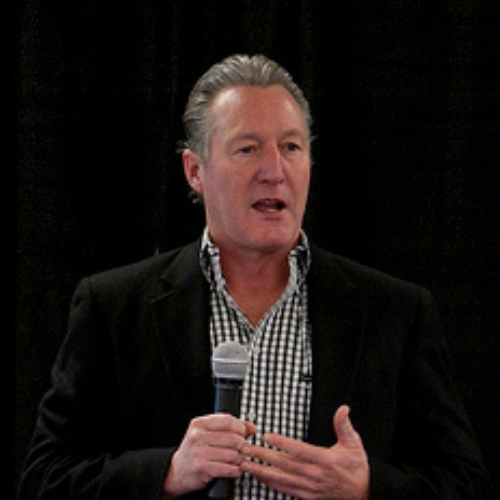
Bill Ludwig
Learn More
William “Bill” E. Ludwig is the Regional Administrator of the U.S. Department of Agriculture Food and Nutrition Service’s (FNS) Southwest Region. He oversees 16 federal nutrition assistance programs in Arizona, Arkansas, Louisiana, New Mexico, Oklahoma, Texas, Utah and 49 tribal organizations with a regional budget of nearly $21 billion. These programs include the Supplemental Nutrition Assistance Program, the National School Lunch and School Breakfast Programs, the Special Supplemental Food Program for Women, Infants and Children (WIC), the Food Distribution Program on Indian Reservations, and other nutrition assistance programs.
Bill’s mission is to ensure that children throughout the region have access to safe, nutritious, and balanced meals. He is a strong advocate of partnerships and believes they are critical to accomplishing the region’s mission of reaching the youngest and most vulnerable populations.
During his tenure, he has built a solid network of more than 300 partner organizations at the Federal, State, Tribal and local levels. These connections have resulted in a greater awareness of the FNS programs and have generated a variety of innovative ways to get healthy food to families and children at-risk of hunger.
Bill believes in leaning forward and stretching across barriers to help those in need, whether they are in an urban or rural community, through programs such as the WIC/Medical Model, the Community Eligibility Program, the Summer Food Service Program, and Mobile Farmers Markets.
Staying connected is important to the business of fighting hunger, so in conjunction with his travel throughout the region, Bill and his team have developed creative ways to keep their audiences informed through social media, e-newsletters, and partner calls.
A native of Bossier City, Louisiana, Bill earned a Bachelor of Arts degree from Louisiana State University and a master’s in business administration from Louisiana Tech University.
Governor’s Food Desert Working Group
The Arkansas Governor’s Food Desert Working Group was organized in the Spring of 2022 to provide recommendations for actionable steps the State of Arkansas could take to eliminate food deserts. The Arkansas Hunger Relief Alliance asked the Governor to convene a working group, representing a diverse group of Arkansans, to define and discuss the issue, and to propose policy and economic development recommendations.
the resulting “food deserts” have broad health and economic consquences.
One of the pillars of HAA is access to healthy foods. The first goal listed in this section is “working to eliminate food deserts.” (page 21) Yet in spite of efforts by many, we have failed to make progress. Sen. Keith Ingram has studied legislation passed by other states, offering financial incentives, such tax rebates or forgivable loans. Other states have worked to create private-public partnerships, with some support from foundations. However, the number of grocery stores continues to decline in Arkansas, without sufficient alternatives being presented. Various non-profits, including the Alliance, are in conversation with retailers, national non-profits, minority farm organizations, neighborhood associations, health care professionals, and others as we seek new ways of solving this issue. For every Tulsa and Birmingham who have seen a new grocery store open in a food desert, we have seen a rural area where a grocery store closes with no replacement.
Resources
Food Access Fast Facts
Beyond Food Deserts
Arkansas Food Deserts
Governor’s Food Desert Working Group Members
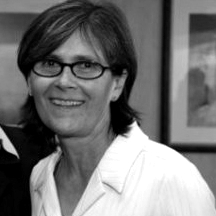

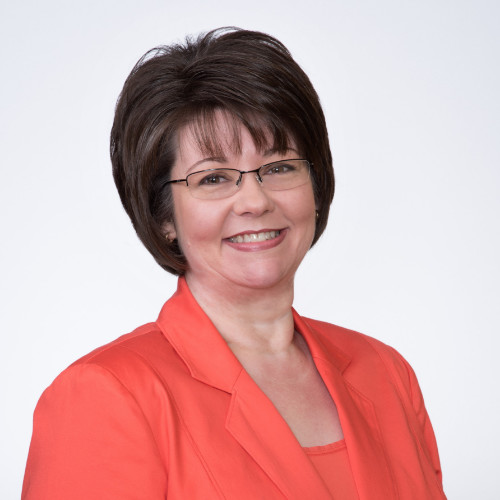
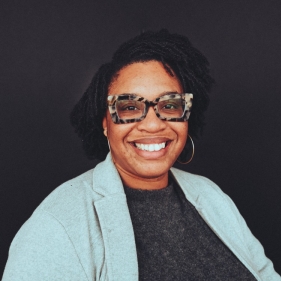

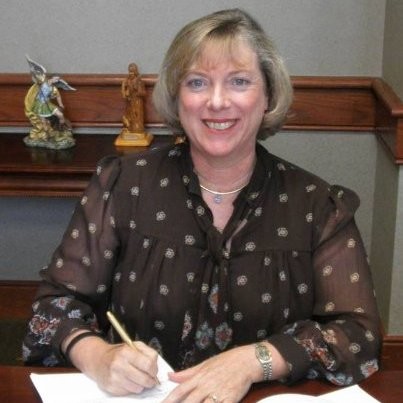

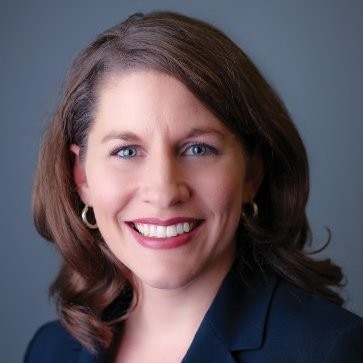
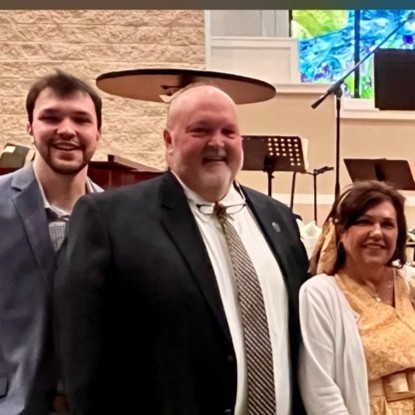




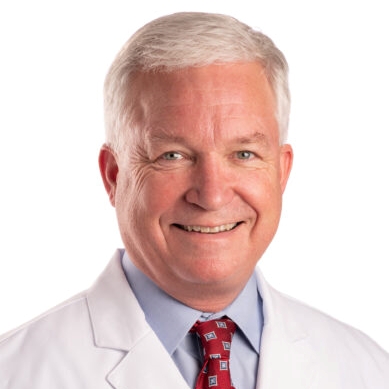
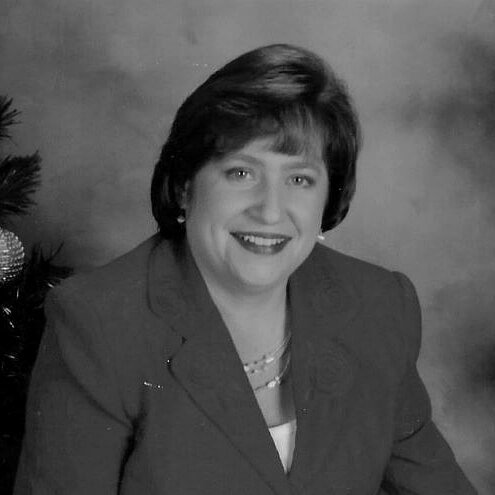
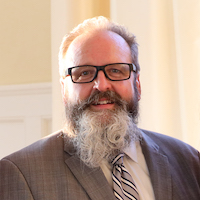
 Kathy Webby, Chair
Kathy Webby, Chair Kenya Eddings, Vice Chair
Kenya Eddings, Vice Chair Christie Jordan
Christie Jordan Kara Wilkinsn
Kara Wilkinsn Rachel Spencer
Rachel Spencer Sandy DeCoursey
Sandy DeCoursey Kelley Jackson
Kelley Jackson Jean Noble
Jean Noble Steve Goode
Steve Goode Dr. Derek Lewis
Dr. Derek Lewis Gary Proffitt
Gary Proffitt Cynthia Edwards
Cynthia Edwards Julia Harkin
Julia Harkin Dr. Joe Thompson
Dr. Joe Thompson Debbie Landers
Debbie Landers Lance Whitney, Alliance staff
Lance Whitney, Alliance staffUpcoming Meetings
December 16, 2022
10am
Little Rock Union Station
1400 W. Markham Street, Little Rock
Past Meeting minutes

Contact
200 West Capitol Avenue, Suite 1300
Little Rock, Arkansas 72201
Newsletter
The Alliance Alert goes out to members, advocates and others who want to stay up on hunger issues in Arkansas. See our latest newsletter.
Quick Links
All Rights Reserved | Website Design by Rock City Digital
